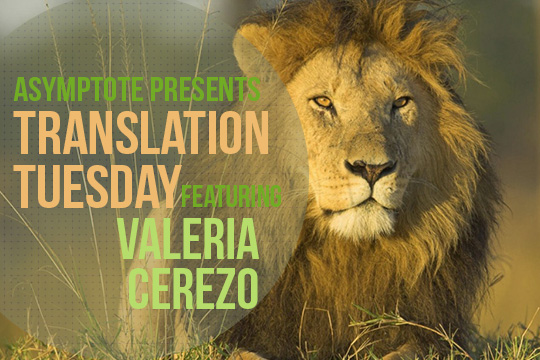If, like us, you can’t start the weekend without knowing what the literary world’s been up to this past week, we’ve got your back. We have dispatches from Central America, the United States and Indonesia with a real tasting board of talks, events and new publications. Wherever you’re based, we’re here to provide you with news that stays news.
Editor-At-Large for Guatemala, José García, reports on events in Central America:
Today Costa Rica’s book fair, the twentieth Feria del Libro 2017, kicked off in San José. During its nine days, CR’s fair will offer concerts, book readings, release events, and seminars. This year’s Feria will have the participation of writers like Juan Villoro (Mexico), Carlos Fonseca (Costa Rica), Pulitzer Prize for Poetry winner Rita Dove (United States), Horacio Castellanos Moya (El Salvador), and Mayra Santos-Febres (Puerto Rico), among others.
Some of the books to be presented or discussed during the fair are Larisa Quesada’s En Piel de Cuervos, Alfonso Chase’s Piélagos, Carlos Francisco Monge’s Nada de todo aquello, Isidora Chacón’s Yo Bruja, and Luis Cháves’ Vamos a tocar el agua. Also, the renown Costa Rican writer Carlos Fonseca, famous for his first novel Coronel Lágrimas that was translated into English by Megan McDowell and published by Restless Books, will talk about his sophomore book, Museo Animal on September 2.
In Guatemala, the indie press Magna Terra continued the promotion of many of its titles released during this year’s Guatemalan Book Fair. On August 17 they officially presented Pablo Sigüenza Ramírez’s Ana es la luna y otros cuentos cotidianos. Also, they continue to push Pedro Pablo Palma’s Habana Hilton, about the most personal side of Ernesto ‘Che’ Guevara, during his time in Guatemala and his early years in Cuba.
Fellow Guatemalan indie press, Catafixia Editorial recently finished a local tour that included their participation in FILGUA, the international poetry festival of Quetzaltenango FIPQ, and a quick visit to Comalapa, for the presentation of Oyonïk, by the twenty-two-year-old poet, Julio Cúmez. Additionally, Catafixia is preparing for their participation in the IV Encuentro de Pensamiento y Creación Joven en las Américas in Habana Cuba next month. And recently they announced the inclusion of writer, poet, and guerrilla leader Mario Payeras to their already impressive roster; they have yet to share which of Mario’s books they will republish.
Finally, Guatemalan writer, Eduardo Halfon, has a new book coming out August 28 titled Duelo (Libros Asteroide).
READ MORE…






